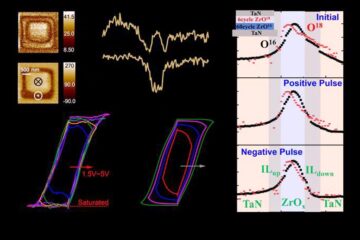Bipolar disorder involves a lower quality of both mental and physical life, even in periods of normality

Part of the results of this research work has been included in a scientific paper of the August 2008 issue of the renowned international journal Bipolar Disorders. In addition, the Headlines review of the American Psychiatric Association has selected such article, among those published by the highest-impact psychiatric journal, as the relevant paper of the month as regards psychiatric disorders and their treatment.
To carry out this work, UGR researchers Luis Gutiérrez Rojas and Manuel Gurpegui Fernández de Legaria, together with other scientists, analysed 108 patients with BD, against a comparative group made up of 1,210 persons from a general population sample. Inside the group of patients, 48 of them were euthymic, this is, without active symptoms of the disease; the remaining 60 patients (non-euthymic) presented relevant symptoms during the evaluation.
BD, known in the past as manic-depressive psychosis, affects approximately 3 of every 100 persons and consists of suffering recurrent depression episodes (depressive phases) alternating with periods of euphoria (manic phases). The patients swing intensely (usually in weeks or months) from happiness to sadness, besides enjoying periods of normality (euthymia).
A lower quality of physical life
The scientists from Granada have found out that, as it was to be expected, patients with BD present a worse mental health than the general population; but, in addition, they have discovered that they have a poorer quality of life at a physical level. This could be due to a higher consumption of addictive substances such as alcohol and tobacco, the long-term secondary effects of the pharmacological treatment and a more sedentary way of life.
From this research we can also gather that BD patients who suffer a lower quality of mental life are those who started to suffer the disease before 20 years old, who have been suffering it for a longer time, who suffer the II subtype of the disease, who are dependent on tobacco and who are suffering depressive symptoms at present. In addition, the researchers from Granada have proved that having a high social support (such as that of the family) is connected with a better quality of life for the patient.
Besides it, their work has made clear that depressive symptoms (sadness, listlessness, tiredness, concentration difficulty, insomnia, poor appetite, etc.) have a higher impact in the quality of life than maniac symptoms (excessive self-esteem, lack on inhibition, verbosity, hyperactivity, increase of sexual appetite, etc.). And they also produce more disability or negative repercussion for working capacity andfamily and social life; this is probably due to that maniac symptoms are usually shorter in time and have a good response to medication, whereas depressive ones are usually more difficult to eliminate.
A more active intervention
Luis Gutiérrez Rojas insists that, at the sight of the results of this work, there should be a more active intervention to help those people who present depressive symptoms or a high tobacco dependence. However, other variables which could seem less relevant a priori, such as having a family history of the disease, having suffered many apisodes of the disorder or having carried out suicide attempt, are not variables significantly conected with a bad quality of life.
Reference: Luis Gutiérrez Rojas. Institute of Neurosciences of the University of Granada. Phone number: +34 958 24 07 04. E-mail: gutierrezrojasl@hotmail.com
Media Contact
More Information:
http://prensa.ugr.es/prensa/research/verNota/prensa.php?nota=561All latest news from the category: Health and Medicine
This subject area encompasses research and studies in the field of human medicine.
Among the wide-ranging list of topics covered here are anesthesiology, anatomy, surgery, human genetics, hygiene and environmental medicine, internal medicine, neurology, pharmacology, physiology, urology and dental medicine.
Newest articles

A chip unique in the world
A team from UPV and iPRONICS has manufactured the first universal, programmable and multifunctional photonic chip on the market. A team from the Photonics Research Laboratory (PRL)-iTEAM of the Universitat…

Advance in light-based computing
…shows capabilities for future smart cameras. UCLA-developed experimental device demonstrates ability to reduce glare in images. Researchers developing the next generation of computing technology aim to bring some light to…

Evidence for reversible oxygen ion movement during electrical pulsing
…enabler of the emerging ferroelectricity in binary oxides. In a recent study published in Materials Futures, researchers have uncovered a pivotal mechanism driving the emergence of ferroelectricity in binary oxides….





















